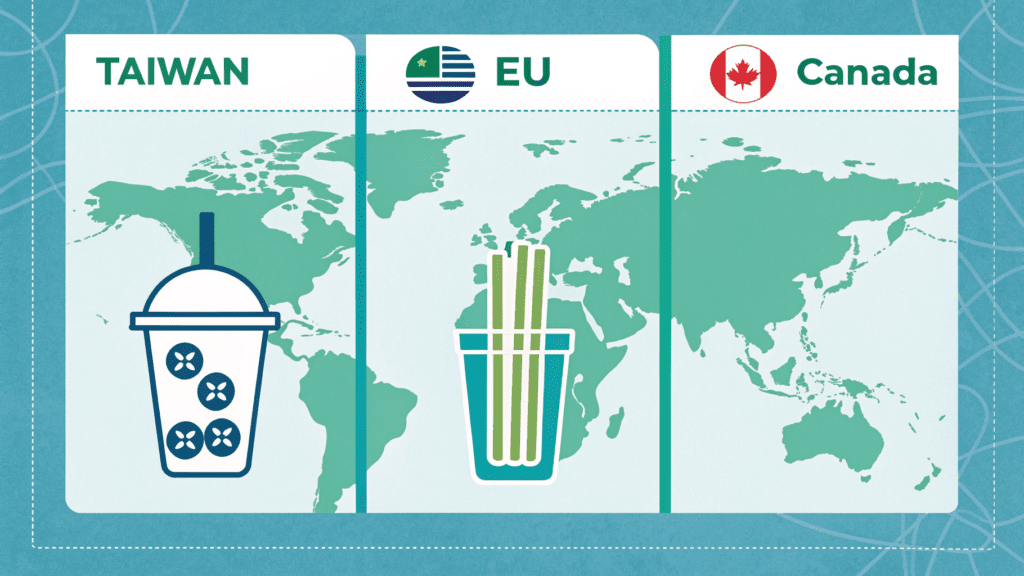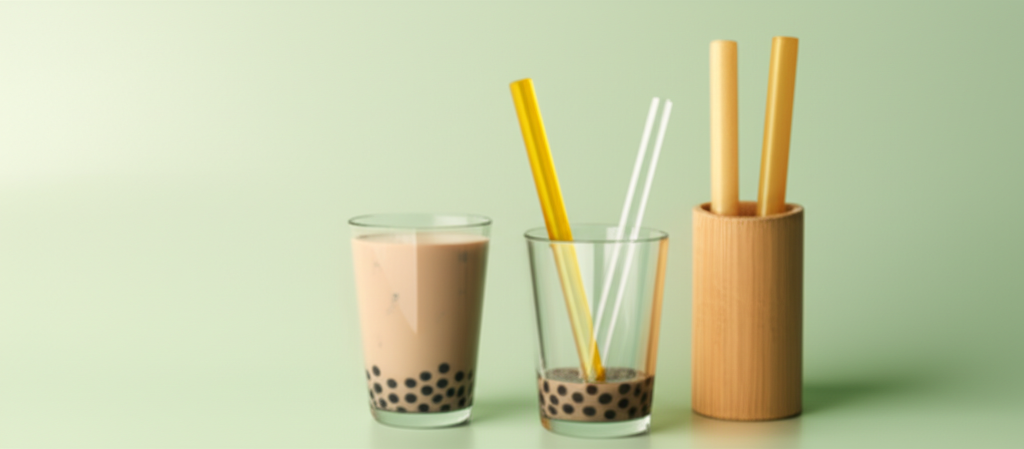
The Hidden Environmental Toll of Boba’s Popularity: A Business Imperative for Hospitality
The global ascent of bubble tea has been nothing short of phenomenal, captivating palates across continents. Yet, this delicious trend carries an unintended and increasingly urgent environmental burden: the widespread use of wide-diameter, single-use plastic boba straws. These seemingly innocuous items contribute significantly to the alarming global plastic crisis. Unlike standard straws, their unique size often prevents them from being effectively recycled, leading to countless tons ending up in landfills or polluting our oceans, where they break down into harmful microplastics that permeate ecosystems and even human bodies. For decision-makers in the hospitality sector—including hotels, cafes, and restaurants—this isn’t merely an environmental footnote; it’s a critical operational and brand challenge that demands immediate attention amidst growing public scrutiny and evolving regulations.

Navigating the Green Transition: Regulatory Pressures and Evolving Consumer Expectations
The shift towards environmental responsibility is no longer a choice but a necessity, driven by a global wave of stricter policies aimed at curbing plastic pollution. Governments worldwide are implementing stringent single-use plastic bans, directly impacting foodservice operations. For instance, countries like Canada and regions within the EU have already moved to prohibit many single-use plastic items, including straws, while Taiwan, the birthplace of bubble tea, has outlined plans for a comprehensive phase-out by 2030. Proactive adoption of sustainable alternatives is therefore paramount not just for regulatory compliance, but to circumvent hefty fines and significant reputational damage. While businesses face logistical challenges in weaning themselves off entrenched plastic supply chains, the imperative to comply and adapt is undeniable.
Beyond regulation, consumer expectations are rapidly evolving. A growing segment of eco-conscious consumers actively seeks out and supports businesses demonstrating a genuine commitment to sustainability, often showing a willingness to pay a premium for green options. A visible commitment to boba straw sustainability doesn’t just meet a demand; it strategically enhances brand positioning, attracts new environmentally aware clientele, and fosters deeper, more meaningful customer loyalty. Leading hospitality players, such as Marriott, Hilton, and Kimpton, are already setting industry benchmarks by phasing out single-use plastics across their operations, signaling a clear direction for the entire sector. To explore a wide array of sustainable options tailored for your establishment, consider visiting our comprehensive range of products.

Beyond Plastic: Strategic Solutions for Sustainable Boba Straws in Hospitality
The good news is that innovation has rapidly responded to the demand for eco-friendly solutions. The next generation of sustainable boba straw alternatives is designed to meet the unique functional requirements of bubble tea, ensuring a seamless experience without environmental compromise. Advancements in materials like PHA (polyhydroxyalkanoates), sugarcane fiber (bagasse), bamboo fiber, and even innovative tea fiber are delivering options that offer impressive durability and stability, ensuring the straw maintains integrity throughout the drinking experience without altering taste. These materials often come with rigorous certifications, such as those from the Biodegradable Products Institute (BPI), ASTM D6400, and FDA, providing procurement teams with vital assurance of their biodegradability, compostability, and food safety. Many of these cutting-edge eco-friendly boba straw solutions are readily available.
When considering the transition, hospitality businesses must weigh various factors to select the ideal boba straw solution. A comparative analysis helps illuminate the strengths of each alternative:
| Feature/Category | Plant-Based Compostable Straws (e.g., Sugarcane, PHA, Reed) | Reusable Boba Straws (e.g., Stainless Steel, Glass, Silicone) |
|---|---|---|
| Material Composition | Bagasse (sugarcane fiber), PHA, PLA, natural reed, coffee grounds, tea fiber | Food-grade stainless steel, borosilicate glass, platinum-cured silicone |
| Key Benefits | Certified biodegradable/compostable, maintains integrity, doesn’t alter taste, ideal for takeout, wide diameter for pearls (11-12mm) | Eliminates waste, long-term cost savings, premium customer experience, customizable, durable |
| Operational & Cost Considerations | Higher unit cost than plastic, requires industrial composting infrastructure (for PLA), simplifies waste sorting for disposable cups | Higher initial investment, requires robust cleaning protocols and equipment, managing consumer “Bring-Your-Own” initiatives, potential safety concerns (glass/metal) |
| Customer Experience | Similar to plastic feel, no sogginess (for advanced materials), positive environmental perception | Unique tactile experience, requires customer compliance for reusables, portable options (telescopic) |
Guiding decision-makers through critical factors—from functionality and unit cost versus long-term value to waste management logistics and crucial consumer perception—is key. Integrating high-performance sustainable boba straws can lead to streamlined waste management, significantly reducing operational complexities and costs associated with plastic disposal. Moreover, offering superior eco-friendly options naturally improves customer satisfaction, fostering repeat business and positive reviews from environmentally conscious guests. Successful strategies include implementing “straws upon request” policies and incentivizing reusable cup and straw programs, demonstrating practical implementation by industry leaders aiming to reduce their environmental footprint.

Seizing the Green Advantage: Future-Proofing Your Hospitality Brand
Embracing truly sustainable boba straw solutions today positions your brand as an industry leader in environmental stewardship, unlocking a significant competitive advantage. The compostable straw market is projected for substantial growth, from an estimated USD 1.9 billion in 2025 to USD 3.8 billion by 2035, signaling a lucrative opportunity for proactive businesses. This isn’t just about compliance; it’s about a tangible long-term return on investment, manifested through reduced regulatory risks, enhanced brand equity, and increased appeal to a rapidly expanding eco-conscious consumer base. For more details on effective eco-friendly solutions, visit our dedicated page on sustainable boba straws.
Embracing sustainable boba straws is more than an environmental obligation; it’s a strategic business move that delivers tangible benefits. We invite procurement managers, operations directors, and sustainability officers to schedule a personalized consultation today. Let us assess your specific needs and explore tailored sustainable boba straw solutions that align with your operational goals and environmental commitments. Additionally, download our comprehensive guide to sustainable boba straw implementation for the hospitality sector to gain invaluable insights and practical steps for your transition. This is your moment to transform your operations and future-proof your hospitality brand.






